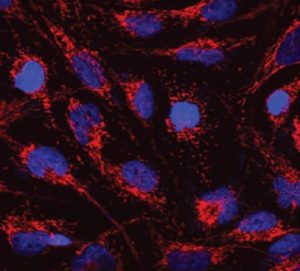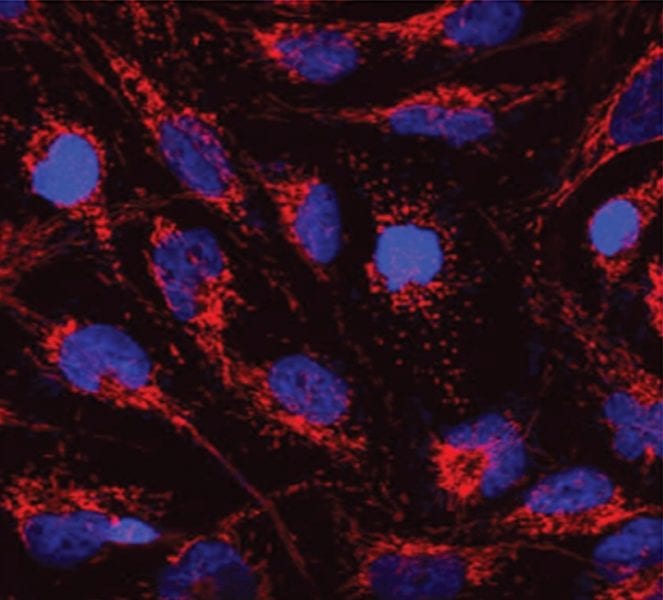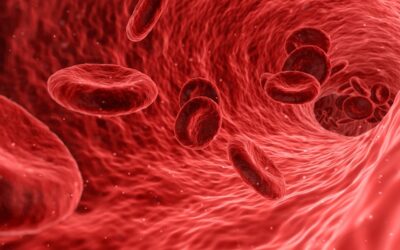Small interfering RNAs (siRNAs) are 20-25 nucleotide double-stranded RNA molecules that act within the cytoplasm of cells to down-regulate the expression of target genes. As such, siRNAs hold great promise for the treatment of a variety of diseases.
 A major barrier to the widespread clinical use of siRNAs, however, is their entrapment and degradation within cell endolysosomes, preventing their trafficking to the cytoplasm. To overcome this problem, researchers have developed PP75, a non-toxic, biodegradable, lipid membrane disruptive anionic polymer composed of phenylalanine derivatized poly(L-lysine iso-phthalamide) . The covalent attachment of siRNAs to PP75 using disulfide linkages generates a conjugate that is readily endocytosed by cells, safely permeabilizes endolysosomes in a pH dependent manner, and facilitates the transfer of siRNAs directly into the cytoplasm.
A major barrier to the widespread clinical use of siRNAs, however, is their entrapment and degradation within cell endolysosomes, preventing their trafficking to the cytoplasm. To overcome this problem, researchers have developed PP75, a non-toxic, biodegradable, lipid membrane disruptive anionic polymer composed of phenylalanine derivatized poly(L-lysine iso-phthalamide) . The covalent attachment of siRNAs to PP75 using disulfide linkages generates a conjugate that is readily endocytosed by cells, safely permeabilizes endolysosomes in a pH dependent manner, and facilitates the transfer of siRNAs directly into the cytoplasm.
In an in vivo malignant glioma tumor model, PP75-stathmin siRNA conjugates down-regulate the expression of stathmin and sensitize tumor cells to nitrosourea chemotherapy, in turn leading to the inhibition of tumor growth. PP75-siRNA conjugates represent a novel class of siRNA delivery vehicles and may be clinically useful for the therapeutic delivery of siRNAs.

















